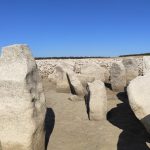Alexander The Great
Alexander the Great was the son of Phillip II, the king of Macedonia. He was born in 356 B.C. His father had high hopes for his son, and he wasn’t disappointed. When he was just 20-years-old, he took over the throne and spread the Macedonian power through Greece, Africa, and Asia. Alexander had no trouble fighting and defeating anyone who opposed his dreams of a unified Greek world. With the help of his troops, he defeated the Persians and the Egyptians. He was in power long enough to bring about a new era in history, the Hellenistic Period.
A Glass Of Wine
Alexander’s death occurred in 323 B.C. when he was only 32 years old. He was in the city of Babylon and had a glass of wine. Shortly after, he died. Some people believed that his wine was poisoned by someone who didn’t want him in power any longer. However, later studies have shown that he may have been suffering from an undiagnosed disease. We may not know exactly how he died, but there is still a chance that his tomb can be uncovered after being missing for centuries.
The Burial
After Alexander died, he was given a pharaoh’s burial. He had family in Egypt, so he wanted to be brought there and transformed into a mummy. It is believed that he was placed in a coffin made of gold and sent to Siwa in Egypt. It is thought that one of his henchmen hijacked the coffin in Syria, and sent it back to Memphis. People saw the coffin as a sign of power, and some generals had stolen jewels and armor from the coffin. The henchman, Ptolemy I Soter, later moved the body to Alexandria.
Communal Mausoleum
Alexander’s new resting place was in a communal mausoleum. It became common knowledge by the 270s B.C. That he was buried there, and people wanted to see it. Celebrities visited the tomb, including the Queen of Egypt, Cleopatra, and Julius Caesar. Also, many emperors made the trip to Alexandria.
Mother Nature
Although the people had great respect for the tomb, Mother Nature didn’t. In 356, the city of Alexandria fell victim to a tsunami. Earthquakes also threatened the area, and when they occurred, they caused severe damage.
The Rising Mediterranean
Another issue was the threat of the sea level due to climate change. It is estimated that the Mediterranean will rise by at least a foot within the 21st century, which can drive out whole communities. A man named Ibrahim, a supermarket manager, says that he had no doubt that this is already happening. He says that there are beaches that he visited his entire life, and now they are gone. He says that if this isn’t proof enough of climate change, he doesn’t know what is. Also, the ancient area of the city is sinking. Despite this fact, people are still building homes and businesses in the area. With all of this going on, Alexander the Great’s tomb has disappeared.
A Robbery
War has repeatedly broken out in the area, and it is believed that the tomb may have been stolen. There is no proof of this, and it is every archaeologist’s dream to find the tomb. When King Tut’s tomb was discovered and opened, it made people want to find Alexander the Great’s tomb that much more.
An Extensive Search
There have been at least 140 archaeological digs in the area. In 1960, Polish excavators started to dig in the downtown area of Alexandria, Kom el-Dikka. They are still there today, searching. After all these years, they still haven’t come across any evidence of the tomb.
Calliope Limneos-Papakostas
In 2019, Calliope celebrated her 20th year at the dig site. She has a dream of finding the tomb, and she is determined to fulfill it. In 2000, she surveyed an old Jewish cemetery that lies in central Alexandria. She believed that the cemetery was built over the cemetery, but she couldn’t dig in the cemetery itself. After hearing that white marble had been discovered, everything about the dig changed. They found a statute that had the likeness of Alexander, and it was from the Hellenistic Period. This told Calliope that she was on the right track.
Time
Excavators in Egypt have uncovered new clues to the long-lost tomb of Alexander the Great. Only time will tell if these clues will finally lead researchers to the actual tomb. For Calliope, it will be the find of a lifetime. Now that this statute has been discovered, Calliope believes that the tomb won’t be too far from the area where the discovery was made. She wants to finally find Alexander the Great’s tomb and put it someplace that it can be protected and appreciated.


